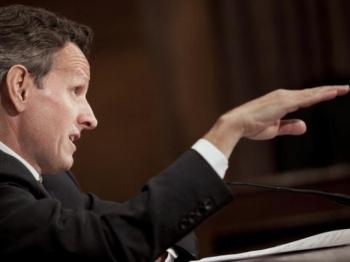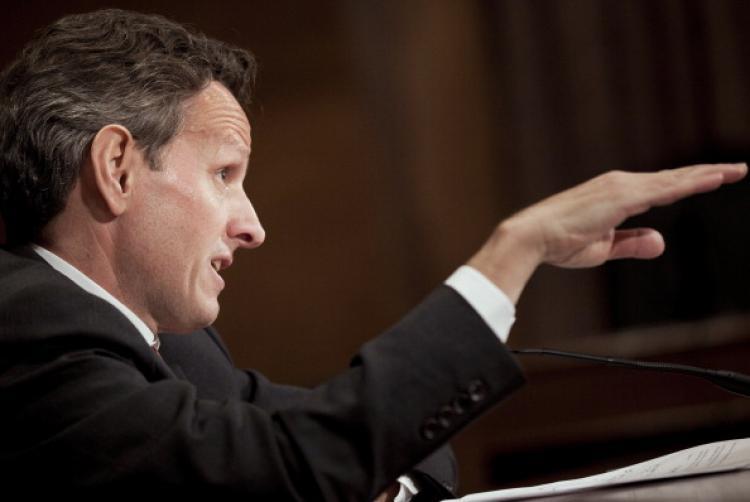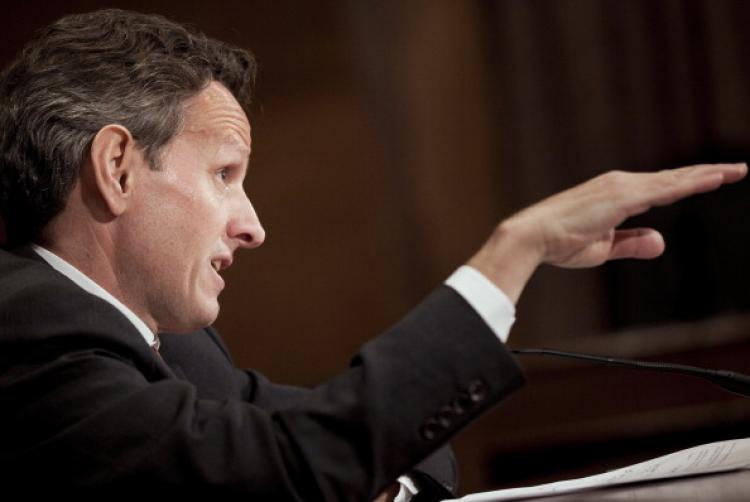TARP, the controversial bailout plan implemented during the economic downturn, will cost only a portion of its original price tag, Treasury Secretary Tim Geithner said on Thursday.
Geithner, in a testimony to the Congressional Oversight Panel (COP) on Dec. 16, praised the government’s response to the financial crisis, arguing that the Troubled Asset Relief Program played a substantial role in averting a meltdown.
“TARP will rank as one of the most effective crisis response programs ever implemented,” Geithner said, adding that despite an original price estimate of $350 billion by the Congressional Budget Office (CBO), “TARP is likely to cost a fraction of that amount. CBO today estimates the cost of the program to be as low as $25 billion.”
TARP, launched by Obama’s predecessor George W. Bush but supported by the current president and his administration, has been constantly criticized for its cost, effectiveness, and necessity since its inception.
On Thursday, Geithner brushed aside claims that the TARP was unsuccessful, arguing that, because of the program, the economy has recovered modestly.
“The economy as a whole has made substantial progress since the recession ended last year,” Geithner stated. “Real GDP has risen for five straight quarters, and private sector firms have started to hire again. The housing market remains weak, but there are signs that it is beginning to stabilize.”
The financial calamity that began in 2007, rooted in a housing bubble, triggered the collapse of large investment banks such as Lehman Brothers and Bear Stearns as well as bailouts of other financial institutions.
U.S. banks have largely recovered their lost capital, Geithner noted, adding, “I am much more confident today that we made the right judgments on forcing that much capital into the system earlier and that will give us a very reasonable prospect of coming out of this stronger.”
Despite the slight economic revival, Geithner warned that more challenges remained in getting the economy back to pre-recession levels.
“Unemployment remains close to ten percent. Although household wealth has begun to recover, many families are still struggling to regain financial security,” he told the COP. “And although many businesses are growing again, others, particularly, small businesses, continue to encounter difficulties accessing credit.”






